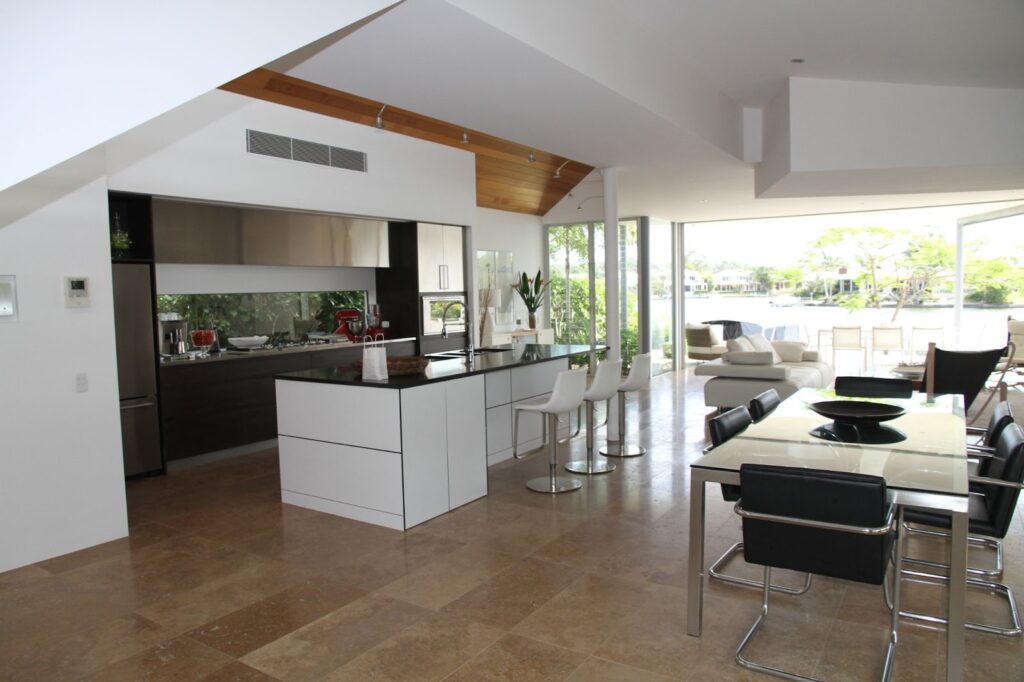Buying my first home is an exciting and significant milestone in my life. The thought of having a place to call my own, where I can create memories and build a future, fills me with anticipation. However, the process of buying a home can also be overwhelming and confusing for first-time buyers like myself. With so many factors to consider and decisions to make, it’s important to approach this journey with careful planning and research.
One of the first steps I’ll take is determining how much I can afford. This involves assessing my financial situation, including income, savings, and expenses. By establishing a realistic budget, I can narrow down my options and focus on homes within my price range.
Next, I’ll need to secure financing. Exploring different mortgage options will help me find the best fit for my needs. Meeting with lenders or seeking guidance from a mortgage broker can provide valuable insights into interest rates, loan terms, and repayment plans.
Lastly, finding the right location and property is crucial. Considering factors such as proximity to work or schools, neighborhood amenities, and future development plans will help me choose a home that aligns with both my current lifestyle and long-term goals.
Embarking on the journey of buying my first home may seem daunting at times, but with proper preparation and guidance from professionals in the field, I am confident that I’ll find the perfect place to call home sweet home.
Finding the Right Neighborhood
When it comes to buying my first home, one of the most important factors to consider is finding the right neighborhood. The neighborhood you choose can greatly impact your lifestyle and overall satisfaction with your new home. Here are a few key things I’ll be keeping in mind during my search:
1. Safety: Ensuring the safety of myself and my loved ones is of utmost importance. I’ll be researching crime rates, talking to local authorities, and even visiting the neighborhood at different times of the day to get a sense of its safety.
2. Amenities: Having convenient access to amenities such as grocery stores, schools, parks, and recreational facilities can greatly enhance everyday life. I’ll be looking for neighborhoods that have a good balance of essential services nearby.
3. Proximity to Work: Commuting can take up a significant amount of time and energy, so I’ll prioritize neighborhoods that offer an easy commute to my workplace or have good public transportation options.
4. Community Vibe: Being part of a welcoming and friendly community can make all the difference in feeling at home. To get a sense of community vibe, I’ll attend local events, talk with residents, and explore social media groups dedicated to the area.
5. Future Development: Considering future development plans in the neighborhood is crucial for long-term investment potential. Researching any upcoming infrastructure projects or zoning changes will help me understand how the area might evolve over time.
Remember that finding the perfect neighborhood involves striking a balance between personal preferences and practical considerations. It’s essential to visit potential neighborhoods in person and envision yourself living there before making a decision.
In conclusion, finding the right neighborhood when buying my first home requires careful consideration of factors like safety, amenities, proximity to work, community vibe, and future development plans. By doing thorough research and visiting potential areas firsthand, I can ensure that I’m making an informed choice that aligns with my needs and preferences.
Determining Your Budget
Assessing your financial situation
When it comes to buying your first home, one of the most crucial steps is determining your budget. Before you start searching for your dream home, it’s important to have a clear understanding of what you can afford.
To begin, take a close look at your current financial situation. Evaluate your income, expenses, and any existing debts or loans. This will give you an idea of how much money you have available for monthly mortgage payments.
Calculating affordability
Next, calculate how much house you can comfortably afford based on your income and expenses. A general rule of thumb is that your monthly housing costs should not exceed 30% of your gross monthly income.
Consider other factors as well such as property taxes, insurance premiums, and maintenance costs which will add to the overall cost of homeownership. It’s essential to factor in all these expenses when determining the maximum price range for your new home.
Saving for a down payment

In addition to evaluating affordability, saving for a down payment is another crucial aspect to consider. The larger the down payment you can provide, the more favorable loan terms and interest rates you may be eligible for.
Start by setting a savings goal and creating a realistic timeline. Consider cutting back on unnecessary expenses or increasing your income through side hustles or additional work hours. Take advantage of programs like employer-matched savings plans or government assistance programs that may help accelerate saving efforts.
Getting pre-approved for a mortgage
Once you have determined your budget and saved for a down payment, it’s time to get pre-approved for a mortgage loan. This step involves working with lenders who will assess your financial profile and provide an estimate of how much they are willing to lend based on their evaluation.
Having a pre-approval letter in hand not only gives you a better idea of what homes are within reach but also strengthens your position as a serious buyer when making an offer.
Remember, it’s important to be realistic and conservative when determining your budget. While it can be tempting to stretch your finances for a larger or more luxurious home, it’s crucial to ensure you can comfortably afford the monthly payments without sacrificing other financial goals or becoming house poor.
In conclusion, determining your budget is an essential step in the process of buying your first home. By carefully assessing your financial situation, calculating affordability, saving for a down payment, and getting pre-approved for a mortgage, you’ll be better prepared to find a home that fits within your means and sets you up for long-term financial success.
Getting Pre-Approved for a Mortgage

When it comes to buying my first home, one of the crucial steps is getting pre-approved for a mortgage. This process involves approaching a lender and providing them with necessary financial information to determine the amount they are willing to lend me.
Here’s what you need to know about getting pre-approved for a mortgage:
- Shop around for lenders: To find the best mortgage rates and terms, it’s important to reach out to multiple lenders. I’ll gather quotes from different institutions and compare their offers before making a decision.
- Gather financial documents: Lenders will require various documents to assess my financial stability and ability to repay the loan. These may include bank statements, tax returns, pay stubs, and proof of assets or debts.
- Complete the application: Once I’ve chosen a lender, I’ll need to complete their mortgage application form. This typically includes personal information, employment history, income details, credit score, and any relevant financial obligations.
- Provide supporting documentation: Along with the application form, I’ll need to submit all requested documents promptly. This helps expedite the review process and ensures an accurate assessment of my financial situation.
- Wait for pre-approval decision: After submitting my application and supporting documentation, I’ll patiently wait for the lender’s decision on whether I’m pre-approved for a mortgage or not. The timeframe can vary depending on the institution but generally takes several days.
- Review your pre-approval letter: If approved, I will receive a pre-approval letter outlining the maximum loan amount that has been allocated based on my financial profile at that time.
Remember that being pre-approved does not guarantee final approval when you find your dream home; however,it gives you an idea of how much you can afford while house hunting.
Getting pre-approved is an essential step in preparing myself financially as it allows me to determine a realistic budget and demonstrate my seriousness as a potential homebuyer. It also gives me an advantage when making offers, as sellers often prefer buyers who have already secured pre-approval.
In summary, getting pre-approved for a mortgage involves shopping around for lenders, gathering financial documents, completing an application form, providing supporting documentation, waiting for the decision, and reviewing the pre-approval letter. It’s a crucial step in the home buying process that helps set the foundation for a successful purchase.
Working with a Real Estate Agent
When it comes to buying my first home, one of the most important steps is finding the right real estate agent. Here are a few reasons why working with a professional in this field can be invaluable:
- Expertise and Market Knowledge: A seasoned real estate agent has extensive knowledge about the local market trends, neighborhoods, and property values. They can provide valuable insights into which areas are up-and-coming, where you’ll find the best schools or amenities, and what properties are likely to appreciate in value.
- Access to Listings: Real estate agents have access to exclusive listings that may not be publicly available. This means they can help you find hidden gems or properties that match your specific criteria before they hit the market.
- Negotiation Skills: Buying a home involves negotiation, and having an experienced agent on your side can give you a significant advantage. They know how to navigate negotiations effectively, ensuring you get the best possible price for your dream home.
- Paperwork and Legalities: The process of purchasing a home involves extensive paperwork and legal documentation. A real estate agent will guide you through these complexities, ensuring all necessary documents are properly completed and filed.
- Connections to Professionals: Real estate agents often have established relationships with other professionals in the industry such as lenders, inspectors, appraisers, and attorneys. They can recommend trusted individuals who will assist you throughout the home buying process.

